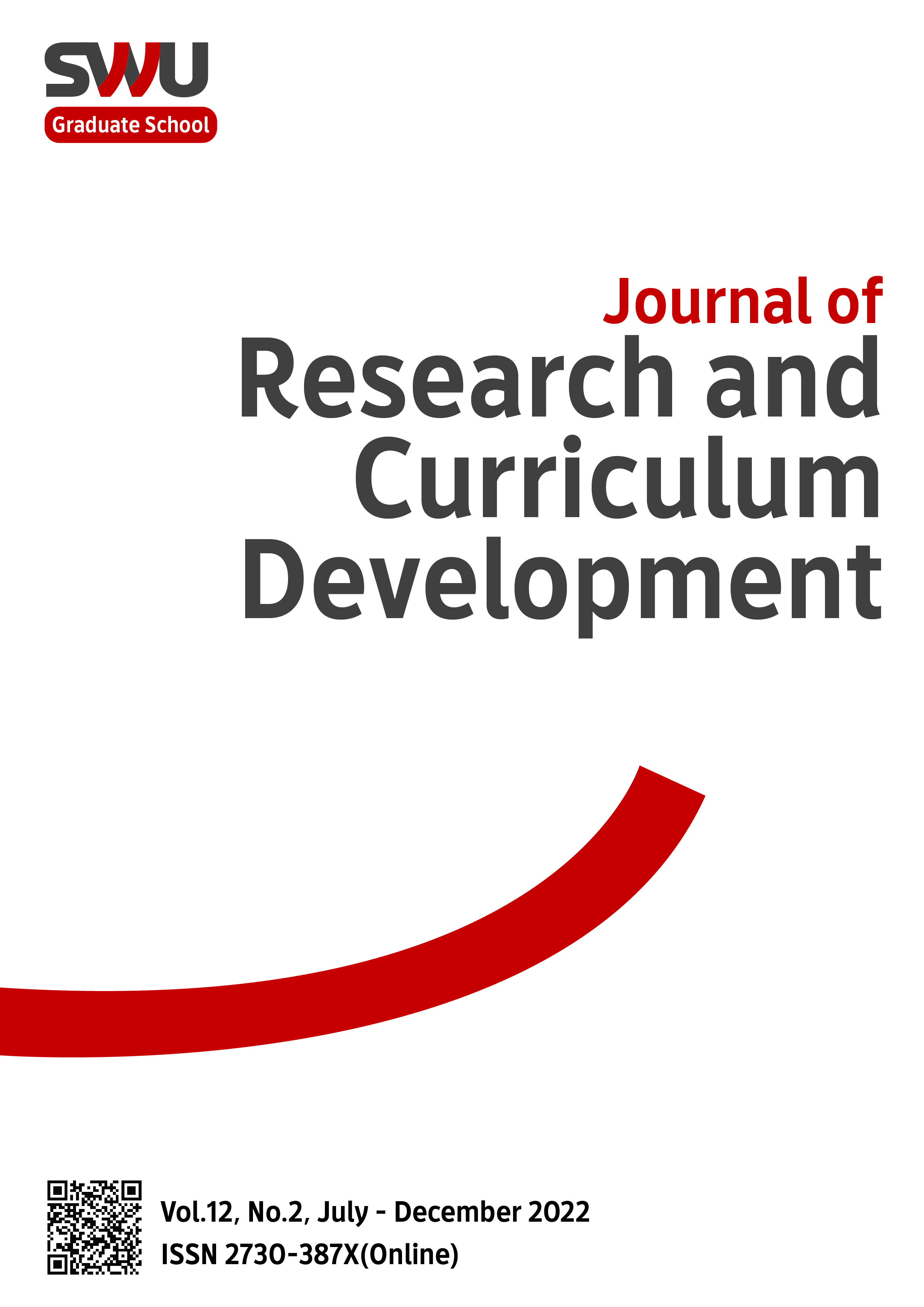A Development of Training Model for Digital Industry Executives using Principles of Knowledge Management based on Engineering Knowledge to Enhance the Digital Competency for the Production Manager of the Industrial Factory
Keywords:
Knowledge Management, Knowledge Engineering, Digital Competency, Training Model, Production Manager,Abstract
This research aimed to study digital competencies of industrial production managers, create and study the effectiveness index of the training model, use and study the use of the training model, and evaluate the effects of the use of the training model for digital performance of industrial production managers using knowledge engineering in order to promote digital competencies of industrial production managers. The research included 4 Step as follows. For Step 1, digital competency of industrial production managers was studied through documents, related research, and interviewing with experts, business owners, and industrial production managers. The data were collected through an interview. The data were then analyzed using content analysis. For Step 2, the effectiveness index of the training model was created and studied through documents, related research, the results obtained from Step 1, interviewing with the experts, and trying it out with the industrial production managers. It was conducted by using the appropriateness assessment form for the training model in the form of 5-point rating scale. The data then were analyzed using content analysis, mean, standard deviation, and analysis of the effectiveness index. For Step 3, the training model was used with industrial production managers. It was conducted with a digital competency assessment form of executives in the form of rubric score. The data were then analyzed using mean, standard deviation, t-test for dependent sample, and t-test for one sample. For Step 4, the use of the training model was assessed by asking the industrial production managers to complete a questionnaire after the training. It was assessment form for the appropriateness of the training model and the satisfaction assessment form for the training model in the form of 5-point rating scale. The data then were analyzed using mean and standard deviation. The findings are as follows:
- Digital competencies of industrial production managers consisted of digital technology management competency, digital content management, digital knowledge management, and the evaluation and digital problem solving.
- The training model included 3 steps: 1) pre-training stage consisting of preparation, defining digital problems, and exchanging knowledge, 2) training stage consisting of knowledge capture, knowledge analysis, and knowledge synthesis, and 3) post-training stage consisting of application of knowledge and monitoring and evaluating the use of knowledge in the form of training. The effectiveness index was .8875.
- After using the training model, the industrial production managers had higher digital competencies than before the training and above the threshold of 80 percent with a statistically significant level of .01.
4. After the training, the industrial production managers thought that input, process, and output of the training model were most appropriate, and the satisfaction with the training model was at the highest level and above the threshold with a statistically significant level of .01.
References
Announcement on National Strategy (B.E.2661 -2037). (2018), 13 October). Royal Thai Government Gazette. (Volume135, chapter 82, pp.1-2).
Jakpituck, N. (2015). Knowledge management theory. Bangkok: Odeon Store. (in Thai).
Davenport, T., & Prusak, L. (1998). Working Knowledge: how organizations manage what They know. Boston: Harvard Business School Press.
Dessler, G. (2005). Human resource management (10th ed.). Upper Saddle River, NJ: Prentice-Hall.
Dubois, D., & Rothwel, J. (2004). Competency-Based Human Resource Management. California: Davies-Black Publishing.
Laird, D. (1985). Approaches to training and development (2nd ed.). Reading, MA: Addison-Wesley.
Marquardt, M. J. (1996). Building the learning organization. New York: McGraw-Hill.
Marquardt, M. J. (2002). Building the Learning Organization. New York: McGraw-Hill.
Nadler, L., & Nadler, Z. (1994). Designing training programs: The critical Events model. (2nd ed.). Houston, TX: Gulf. Publishing Company Limited.
Nonaka, I., & Takeuchi, H. (1995). The knowledge-creating company: How Japanese companies create the dynamics of innovation. New York: Oxford University Press.
Shermon, Genesh. (2004). Competency Base HRM: A Strategic Resource for Competency Mapping, Assessment and Development Centre. New Delhi Tata: McGraw-Hill
Tiwana, A.(2000) The knowledge management toolkit: Practical techniques for building a knowledge management system. New Jersy: Prentice Hall.
Wiig, K. (1997). Knowledge management foundation. Arlington. TX: Scgema.
Downloads
Published
How to Cite
Issue
Section
License

This work is licensed under a Creative Commons Attribution-NonCommercial-NoDerivatives 4.0 International License.





